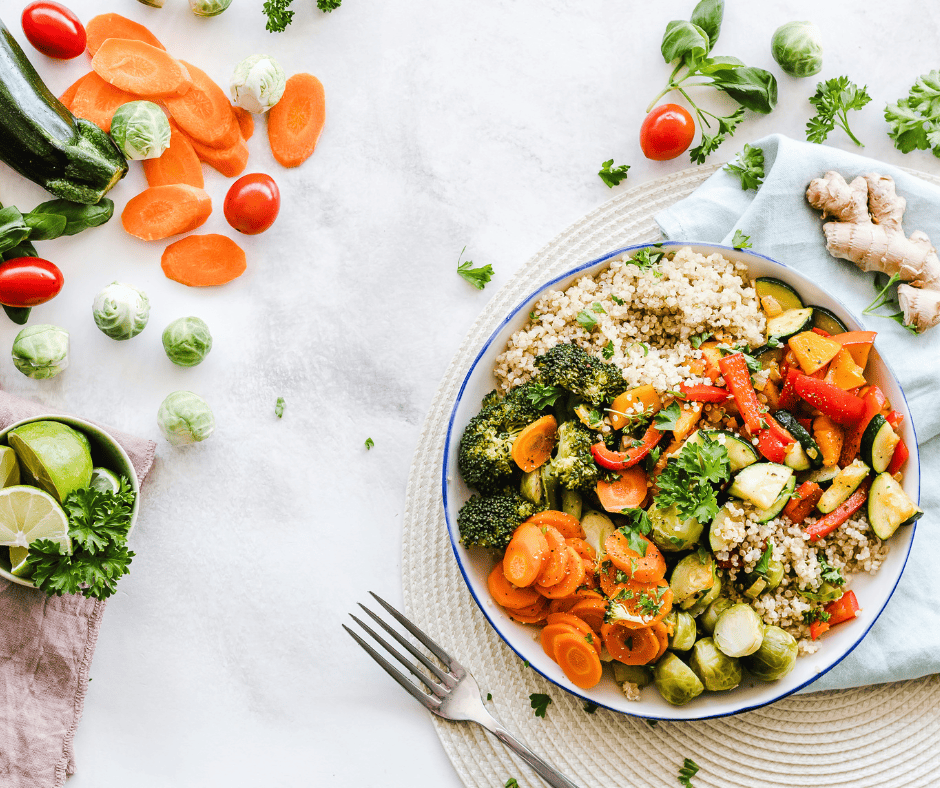
You recently found out that you’re pregnant… Amazing! You’re probably experiencing a range of emotions from excitement to overwhelm. You might have a ton of questions whirling around in your head. How do you need to adjust your life to support the development of your little one? How should you deal with morning sickness? Keep reading for answers to these questions and more.
How Many Weeks Is The First Trimester?
The first trimester starts on the first day of your last period and ends in the 13th week of your pregnancy. This is the most important part of your pregnancy. UCSF Health explains, “During this period, your baby’s body structure and organ systems develop. Most miscarriages and birth defects occur during this period.”
You may consider getting an ultrasound during the first trimester. During this appointment, a technician may be able to tell you how many fetuses are there, the gestational age as well as your due date, and they can check the fetus’s heart rate and may screen for certain genetic disorders.
What Happens In The First Trimester?
Your body goes through incredible changes during these 13 weeks! First of all, you go into overdrive with producing hormones. In fact, according to Cleveland Clinic, your body makes more estrogen during pregnancy than it does during your whole life!
The new addition to your body also increases your body’s need for blood, so it’s working hard to increase your blood volume.
These changes can lead to some common symptoms.

What Are Normal First Trimester Symptoms?
Due to hormone fluctuations, a common pregnancy symptom in the first trimester includes swollen, tender breasts. These hormone changes are likely to cause some mood swings, too.
You may also experience nausea and vomiting. Morning sickness – despite the name – can occur any time of the day or night.
Many women also feel more tired than usual. Sanford Health explains, “Your blood volume has doubled to ensure your baby is getting the nutrients it needs to grow. To accommodate this increase, your heart is pumping harder and stronger. This in turn increases your metabolism and lowers your blood sugar and blood pressure, adding to your fatigue.”
The increased blood flow and pressure to your pelvis area may cause you to urinate more frequently than usual.
What Should Be Avoided In The First Trimester?
Alcohol
Alcohol can cause series harm to your developing baby. “During pregnancy, alcohol increases the risk of pregnancy loss, stillbirth, and fetal alcohol syndrome (FAS). FAS can affect many aspects of development, including the heart and the brain,” says Healthline.

Too Much Caffeine
A coffee habit can be a challenge to quit! Luckily, you don’t have to go cold turkey. According to The American College of Obstetricians and Gynecologists, “…moderate caffeine consumption (less than 200 milligrams per day) does not cause miscarriage or preterm birth. That’s the amount in one 12-ounce cup of coffee.”
Raw Fish, Meat, And Eggs
Raw or undercooked meat, fish, and eggs may contain certain bacteria – like e. coli, listeria, and salmonella – that can cause your baby harm.
Soft Cheeses
Just like with raw meat and eggs, there is a chance that unpasteurized or soft-ripened cheese may contain listeria bacteria, so it’s best to avoid these types of cheeses. Stick to cheddar, mozzarella, paneer, and feta.
High Mercury Fish
Fish is a healthy source of protein and omega-3 fatty acids to include in your pregnancy meal plan, however, it’s important to ensure that the fish you choose is low in mercury. “Research shows that exposing the fetus to mercury may cause brain damage or hearing and vision problems,” says Medical News Today.
Certain Medications
It’s important to check any medications that you’re on to make sure they’re safe to take during pregnancy.
Too Much Stress
Severe stress doesn’t just have a negative impact on you, but also on your developing baby. Parents points out that, “…prolonged bouts of severe stress is associated with complications like preterm birth, low birth weight, and even sleep and behavioral disorders.”

First Trimester Diet Plan
A lot of what you can’t do while pregnant relates to food! So, what food should you prioritize in your first-trimester diet?
Folate
Folate, or folic acid, is essential during the first trimester as it’s responsible for the formation of the neural tube and helps prevent major birth defects such as anencephaly and spina bifida. Foods rich in folate include legumes, eggs, leafy green veggies, nuts and seeds, and fortified whole grains.
Iron
Iron is an essential building block for your blood supply, so your body needs extra during this period. You can get this vitamin through beef, chicken, eggs, tofu, and spinach. To increase your absorption of iron, pair it with sources of vitamin C, such as citrus fruits, bell peppers, strawberries, and tomatoes.
Calcium
It’s vital to include foods rich in calcium (such as cheese, milk, yogurt, and broccoli) as, “Your developing baby needs calcium to form bones and teeth. They’re building an entire skeleton, after all. Calcium is also an important nutrient for your baby’s heart, muscles, nerves, and hormones,” explains Very Well Family.
Omega-3 Fatty Acids
Low mercury fish such as sardines, salmon, tilapia, and anchovies are extremely healthy to include in your pregnancy diet, “Adequate consumption of omega-3 fatty acids is vitally important during pregnancy as they are critical building blocks of fetal brain and retina. Omega-3 fatty acids may also play a role in determining the length of gestation and in preventing perinatal depression,” explains the National Institutes of Health.
Protein
There are so many great reasons to include eggs in your diet, including their protein content. Other fantastic sources of protein include chicken, beef, and pork; vegetarian mamas can opt for cottage cheese, legumes, Greek yogurt, tofu, and quinoa. “[Protein is] key for muscle development for both you and your baby, and supports uterine tissue growth. Aim for about 75 grams per day,” advises What To Expect.
The first trimester of pregnancy is the start of a beautiful new chapter in your life, mama! And, one of the best things you can do for yourself and your baby is to prepare as much as possible. This is why we’ve put together the free Birth Made Simple course. We break down what you need to know about labor and delivery, as well as what you need to know about yourself and your baby in those fresh 48 hours postpartum. Sign up!




